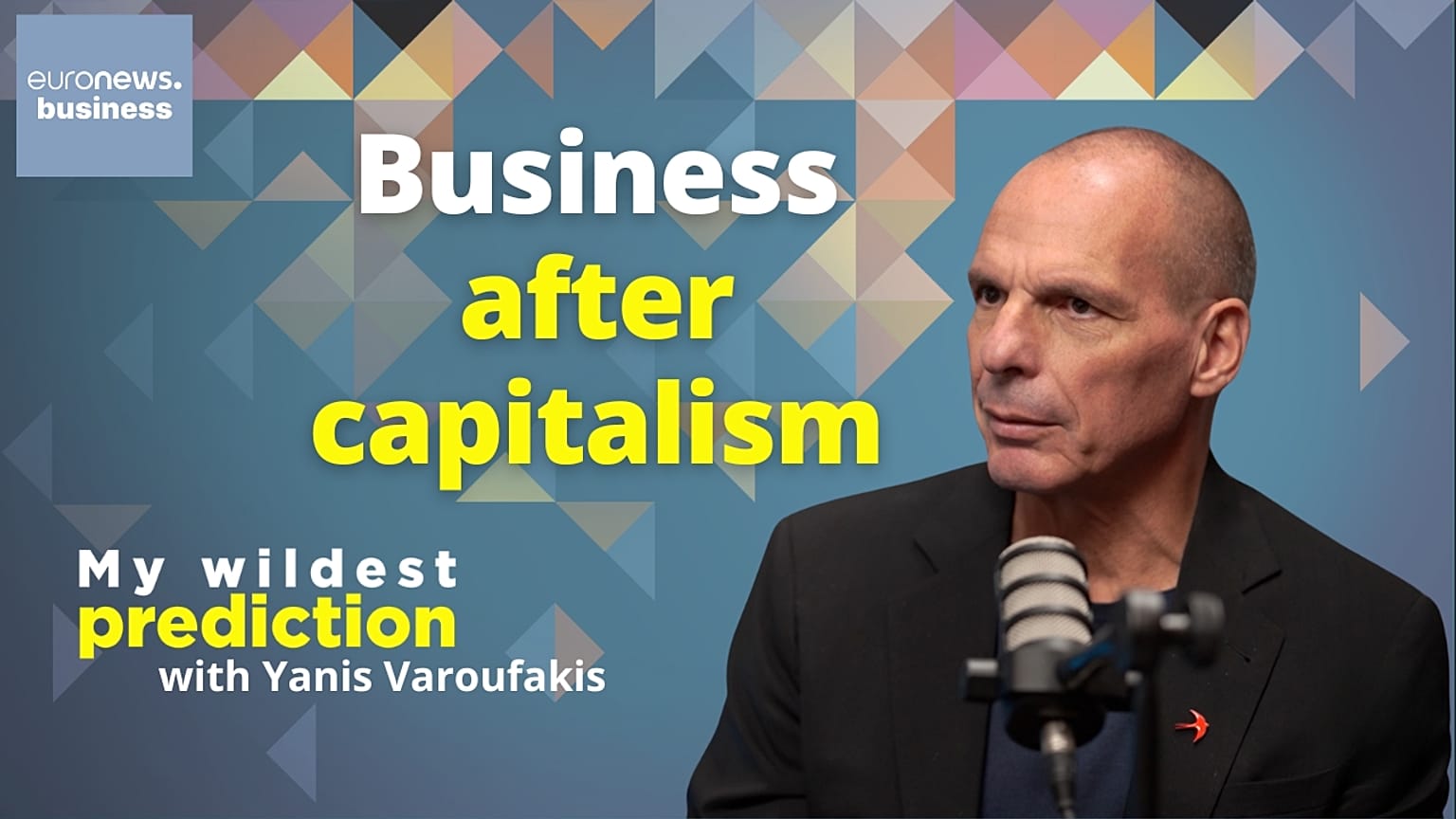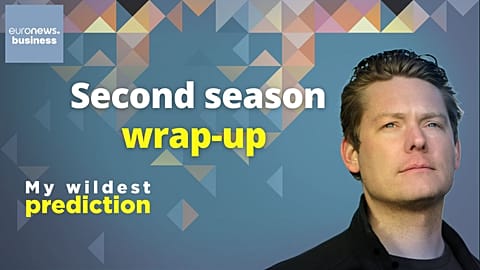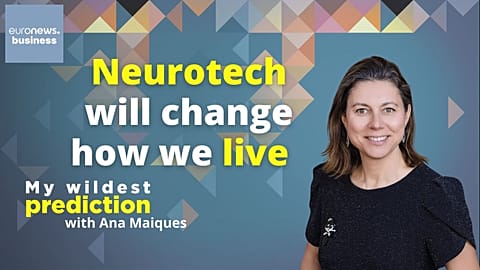It’s the most wonderful time of the year for retailers. With Christmas around the corner, shopping soars: groceries and drinks for dinners, toys, electronics for gifts, and clothes for events. It seems wild not to believe that capitalism is in perfect health...
However, former Greek Minister of Economics Yanis Varoufakis not only thinks it's in decline but claims it's already dead. Who killed it? Well, according to him, Amazon and Alibaba, among others...
 ADVERTISEMENT
ADVERTISEMENT
 ADVERTISEMENT
ADVERTISEMENT
My Wildest Prediction is a brand new podcast series from Euronews Business where we dare to imagine the future with business and tech visionaries. In this third episode, Tom Goodwin discusses with Yanis Varoufakis, a Greek economist, academic, and politician, to explore what he believes has brought about the demise of capitalism and to envision what the future holds.
So, if capitalism is over...what comes next?
"My estimation, and this is a controversial hypothesis, is that capitalism has already ended," claims Varoufakis.
According to Varoufakis, we are back in feudalism. Not the kind of feudalism left behind with the Industrial Revolution and the rise of the middle class, but a new form: "technofeudalism."
Feudalism is a system characterised by the hierarchical structure of landownership and obligations, where lords granted land to vassals in exchange for military service and other duties.
Well, now the lords are the owners of big tech, and the users are the vassals. The vassals surrender their data in exchange for their service.
This is the death of capitalism that Varoufakis describes in his new book, "Technofeudalism: What Killed Capitalism."
Varoufakis points to the online retail giant Amazon as an example of a lord: he says it may appear as a market, but it functions more like "a cloud fiefdom belonging to one man whose accumulation of wealth is based, non-profit, but on a form of rent."
He adds, "Every time you buy something on Amazon, 30-40% of the price goes to Mr. (Jeff) Bezos, not to the market."
Varoufakis writes about technofeudalism, explaining this concept in a letter format to his father, Giorgios (who died aged 96 in 2021), a steel factory worker.
Varoufakis says he envies the way his father lived.
“However hard one had to work, you could at least fence off a portion of your life, however small, and within that fence remain autonomous, self-determining, free.”
According to him, "technofeudalism" demolished that fence.
"We are all happy little slaves who love our slavery," he claims.
But can technology save us?
The former Minister of Economy of Greece is not optimistic about 'technofeudalism.' He believes it is not going to end well.
"The exponential concentration of incomes in the hands of people who produce nothing except for the right and the opportunity to extract incomes from others while the world is heading towards catastrophe."
Can technology, when properly used, save us?
"Our technologies are a force for both good and evil. And if evil prevails, it is our fault," says Varoufakis, who asserts that technology is only a tool.
He sees two solutions - and they are not technological but sociopolitical.
One is to end free services to break the tyranny of big tech.
"So if you are an app, you get paid directly by the person using the app, not indirectly through advertising, because that way, you do not have this complete takeover of households."
The second is changing corporate law to make companies more democratic.
He envisions a scenario where every employee in a company, especially in large ones, would have one share that cannot be traded, similar to a library card given to a university student. This share wouldn't represent equality in terms of money but would give each employee a vote in company decisions. The idea is that those who contribute significantly to the company's success could receive more financial rewards.
This change, according to Varoufakis, would revolutionise both share markets and labour markets, leading to market-based cooperatives owning algorithms in a non-exploitative way, with micropayments going to those who use these algorithms.
"Hope is my duty, and I cling on to it," he concludes. "Against all empirical evidence."




















